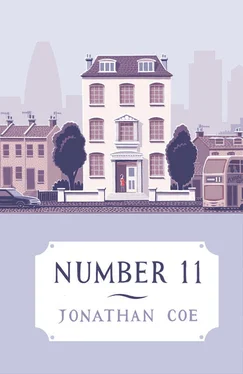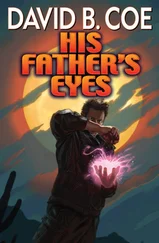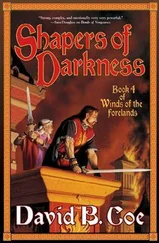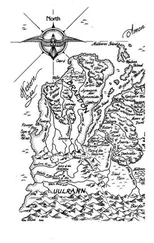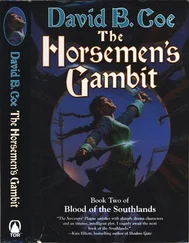Jonathan Coe - Number 11
Здесь есть возможность читать онлайн «Jonathan Coe - Number 11» весь текст электронной книги совершенно бесплатно (целиком полную версию без сокращений). В некоторых случаях можно слушать аудио, скачать через торрент в формате fb2 и присутствует краткое содержание. Год выпуска: 2015, Издательство: Penguin, Жанр: Современная проза, на английском языке. Описание произведения, (предисловие) а так же отзывы посетителей доступны на портале библиотеки ЛибКат.
- Название:Number 11
- Автор:
- Издательство:Penguin
- Жанр:
- Год:2015
- ISBN:нет данных
- Рейтинг книги:4 / 5. Голосов: 1
-
Избранное:Добавить в избранное
- Отзывы:
-
Ваша оценка:
- 80
- 1
- 2
- 3
- 4
- 5
Number 11: краткое содержание, описание и аннотация
Предлагаем к чтению аннотацию, описание, краткое содержание или предисловие (зависит от того, что написал сам автор книги «Number 11»). Если вы не нашли необходимую информацию о книге — напишите в комментариях, мы постараемся отыскать её.
It's about the legacy of war and the end of innocence.
It's about how comedy and politics are battling it out and comedy might have won.
It's about how 140 characters can make fools of us all.
It's about living in a city where bankers need cinemas in their basements and others need food banks down the street.
It is Jonathan Coe doing what he does best — showing us how we live now.
Number 11 — читать онлайн бесплатно полную книгу (весь текст) целиком
Ниже представлен текст книги, разбитый по страницам. Система сохранения места последней прочитанной страницы, позволяет с удобством читать онлайн бесплатно книгу «Number 11», без необходимости каждый раз заново искать на чём Вы остановились. Поставьте закладку, и сможете в любой момент перейти на страницу, на которой закончили чтение.
Интервал:
Закладка:
There was an expectant silence. Nobody had yet seen the logical conclusion of what he was saying.
‘From this year onwards,’ he concluded triumphantly, ‘the Winshaw Prize will be awarded to … the best prize in the United Kingdom .’
Around the table there was an audible gasp, at both the audacity and the simplicity of the idea. Of course! What better way to establish the Winshaw Prize’s superiority over every other award in the country? From now on the Booker, the Turner, the Mercury, the Stirling and all the others would be pitted against each other, every year, in deadly competition, and there would be no need to announce the criteria for judgement, since the fundamental meaninglessness of the comparison would be the whole point, and indeed the very origin of the prize’s prestige. There might well be a reluctance to cooperate on the part of the other prizes’ organizers, but that was not important. Prizes would be considered eligible whether they were officially entered or not, and besides, each annual ceremony would be so lavish, so glamorous, and would attract so much publicity, that in a few years everybody would be clamouring to take part. And so, indeed, it proved. The media quickly latched on to the idea and before long the presentation of the Winshaw Prize, which took place every November, became one of the biggest talking points in the calendar of British public life. After a shaky and somewhat predictable start (it was awarded to the Turner Prize in its first year, and to the Forward Poetry Prizes in its second) the Winshaw got into its stride and went from strength to strength. The shock year in 2005, when it was awarded to the little-known Giggleswick Prize for the best flower arrangement in the BD postal area, blew things wide open, making people realize that the prize was not just open to the ‘big hitters’ but to any plucky little independent outfit which happened to catch the judges’ attention. In 2008 the prize was opened to other European prizes and in 2011, in a bold and controversial move, to American prizes, making it a truly global and continent-spanning award. 2012 was a spectacular year, in which the Pulitzer Prize went head to head against the Nobel Prize for Physics, and yet the award was finally carried off, in a dramatic last-minute reversal, by France’s Prix Médicis Étranger. Every year, now, the Winshaw prize was getting bigger, and the stakes were getting higher. In financial terms alone it was now worth one million pounds to the lucky victor. 2013 promised to be another milestone in the prize’s history.
*
The venue for this year’s presentation was the new Library of Birmingham, which fronted on to Centenary Square in the very heart of the city. Its striking, monumental design by the Dutch architects Mecanoo proclaimed an unapologetic postmodernism, evident especially in its glittering façade, which was festooned with thousands of golden curlicues. Completed at an eye-watering cost to Birmingham City Council of some £187 million, the library had been heralded throughout the land as proof that Britain had not yet quite sunk into a state of illiteracy and philistinism, and was lauded effusively by prominent writers and other public figures, who remained unconcerned (or unaware) that the city — like most others in the country — was at the same time overseeing the closure of many smaller, less prestigious local libraries. (In fact it would soon transpire that the library itself had been far too expensive a project, and little more than a year after it opened, the City Council would announce that it needed to save £1.3 million per year on running costs, and that it had no option but to slash its opening hours and make about half of its staff redundant.) The Winshaw Prize committee felt, for all sorts of reasons, that no more appropriate venue could be found for this year’s award ceremony.
Although not designed for large-scale public functions, the library proved readily adaptable for the occasion. The entire ground floor was put to use, and sixty tables were brought in to accommodate the 720 lucky invitees. The police, the security services and Special Branch all had a substantial presence: this year’s guest list, after all, included Richard Dawkins, Tracey Emin, Michel Houellebecq and glamour-model-turned-singer Danielle Perry, so no one could afford to take any chances.
Security was tight, too, at the Hyatt Regency Hotel, which stood opposite the library, and where most of the guests were booked to stay the night. And it was on the sixteenth floor of this hotel, in a king-size double room which commanded a fine view over the tower blocks and arterial roads of Birmingham city centre, that a painful scene was being played out, just one hour before the prize dinner was due to commence. Lucinda and Nathan were having their first argument.
‘I am so sorry about this,’ Nathan was saying.
‘It’s so unlike you,’ Lucinda replied, ‘to engineer this situation. To put me in such an uncomfortable position.’
‘I accept full responsibility. It’s my own fault. I should have made it clear to DCI Capes that we needed separate rooms. He assumed, because you were my guest, that we would be sharing.’
‘And now you say the hotel is completely booked up?’
‘Completely.’
‘Well, this is most … distressing. I can think of no other word.’
‘Lucinda, we can get through this, if you will just be brave. Look how large the bed is …’
She turned to him, horrified. ‘You’re not suggesting that we share it?’
‘Or look at this sofa. Easily big enough for a man my size to have a comfortable night’s sleep.’
She looked at it appraisingly, and for the first time seemed to be mollified. ‘It’s true. It does look quite substantial. And it’s at least two yards from the end of the bed.’
‘And I’ve brought my sleeping mask with me. I won’t see a thing.’
‘Do you mean that, Nathan? Can I trust you?’
She gazed at him in anxious appeal, and once again he felt that a lifetime spent contemplating the depth and blueness of her eyes would be a lifetime well spent.
‘Of course, Lucinda. Of course.’
For a moment she looked so relieved and grateful that he thought that he might be gifted a hug. But this was wildly over-optimistic. She merely nodded her approval and said: ‘All right, then.’
‘And now,’ he said, doing his best to conceal his disappointment, ‘I’m needed over at the library, so I must change into my tux, if I can use the bathroom first.’
‘Of course.’
She stood aside to let him pass, and, within a few minutes, Nathan had changed into his dinner suit and was on his way to rendezvous with DCI Capes at the library entrance.
*
‘For God’s sake where are the fucking menus?’ said Sir Peter Eaves, looking at his watch. ‘We’ve been sitting here for twenty minutes now and nobody has a fucking clue what we’re going to be eating.’
Helke Winshaw glanced across at him sharply. Her cousin irritated her. Come to that, he was barely her cousin: second cousin by marriage, or something like that. She was annoyed that they had been put at the same table just because of this distant relationship. He was always complaining. Complaining and, therefore, drawing attention to himself, which in her view was a strategic error when you belonged to this particular family. As for his drip of a daughter … well, it looked like they were going to have to sit next to each other all evening, and that was going to make this dreary occasion even more dreary. They had nothing in common. Nothing at all.
In fairness to Josephine, there were not many people in the world who would find Helke Winshaw an easy dining companion. She regarded her words, like everything else she possessed, as valuable commodities which were not simply to be spilled out in order to lubricate the gears of social discourse. On top of which, as Chief Executive Officer of Winshaw Clearance plc, she had a keen (though scarcely inflated) sense of her own importance. She had founded the company herself, twenty years ago, in memory of her husband Mark, who had died in the same massacre that had claimed the lives of Roderick Winshaw and Hilary, Josephine’s mother. Mark had made a fortune from selling weapons. As a result of his efforts, many parts of the world were now contaminated with unexploded ordnance (or Explosive Remnants of War). It was seen as touching — if somewhat ironic — that after he died, his widow should set up an organization devoted to clearing former conflict zones of the lethal detritus which Mark’s activities had left behind. However, she had not done it for humanitarian reasons. It made perfect business sense to assume that, if there was money to be made from facilitating wars, there was money to be made from clearing up after them as well. Helke understood all too well that ERW clearance was a ruthlessly competitive business just like any other, and she approached it in that spirit. She fought aggressively to secure long-term contracts in major war zones such as Iraq and Afghanistan, since this was where the big money was to be made. At the same time, she kept a keen eye on smaller, independent NGOs which specialized in ERW clearance, since these outfits were often run by young and idealistic people who would energetically seek out less obvious territories which were also in need of decontamination: once a smaller company had found one of these areas and commenced operations there, Winshaw Clearance would then pile in like a juggernaut, put them out of action and hoover up the rest of the business themselves. Now, after two decades of expansion, acquisition and asset-stripping, they were established as the undisputed world leaders in their field, with an annual turnover in the tens of millions. And Helke Winshaw continued to sit discreetly at the helm.
Читать дальшеИнтервал:
Закладка:
Похожие книги на «Number 11»
Представляем Вашему вниманию похожие книги на «Number 11» списком для выбора. Мы отобрали схожую по названию и смыслу литературу в надежде предоставить читателям больше вариантов отыскать новые, интересные, ещё непрочитанные произведения.
Обсуждение, отзывы о книге «Number 11» и просто собственные мнения читателей. Оставьте ваши комментарии, напишите, что Вы думаете о произведении, его смысле или главных героях. Укажите что конкретно понравилось, а что нет, и почему Вы так считаете.
